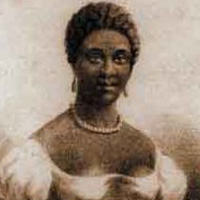On Being Brought from Africa to America by Phillis Wheatley: Summary and Analysis
Phillis Wheatley was brought to America from Africa at the age of eight. She uses that event and her experience in America as the subject matter of her poem. Therefore, this poem has autobiographical component.

Phillis Wheatley (1753-1784)
In this short poem, Wheatley tries to give the Afro- American theme in a restoration model of writing. So, the format is British and the theme of the poem is American.
Despite this dependence on the British model, Phillis Wheatley demands freedom, redemption or equality through this poem. She argues that she never knew about redemption and freedom before she was brought to America. Once she came, she knew the possibility of freedom along with the prevailing sense of discrimination. She realizes that blacks are behaved like Cain, who was cursed by the god to be fugitive and vagabond. Pulling this argument from the Bible, whites argues that the Blacks are the children of Cain and their duty is just to serve the whites. The argument is used only to justify the contemporary slavery system. Quite oppressed to that Wheatley argues blacks can be refined and join the angelic train like whites. Through this statement, she demands equality for the Blacks.
It’s true that this is not a strong voice on the part of the blacks from the 21st century view point. But this weak argument may be the product of contemporary social structure when the slavery was dominant. From the point of view of that system, this is a significant black voice in America.
There are some remarkable contrasts made by Phillis Wheatley in the poem. The first one is the contrast between America and Africa. She has defined America as the land of rescuer, non-pagan, and redemption. It was described as the land where darkness is removed and the ignorance is eradicated. But, Africa for her is a pagan land, a dark place without God and ignorance is prevalent everywhere. The poet does not state any horrific incidents of the slave ships from Africa to America. For her now, the events in the ships are lesser important because she had gotton redemption and light.
Another important dichotomy is light and dark, and knowledge and ignorance. Wheatley using the Christian metaphor of light and darkness shows us that at first when she was in Africa, she was in darkness, she was ignorant and ‘benighted’. But, after her arrival in America she became Christian and now she calls herself a more refined and ‘taught’ person. She is filled with light and redemption. It is strange that she does not speak against the slavery system, but appreciates it stating that through it she can get light and redemption. She justifies in the last of the poem stating that ‘Black as Cain may be refined’ and strongly supports the Christianity as the only source of light and redemption.
